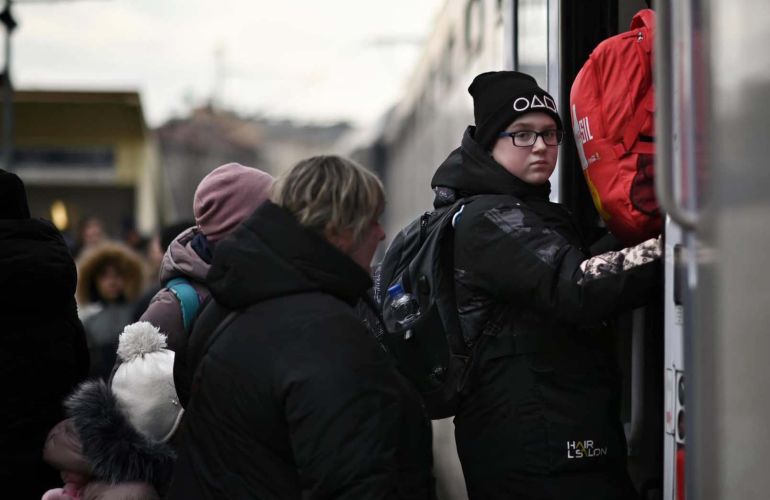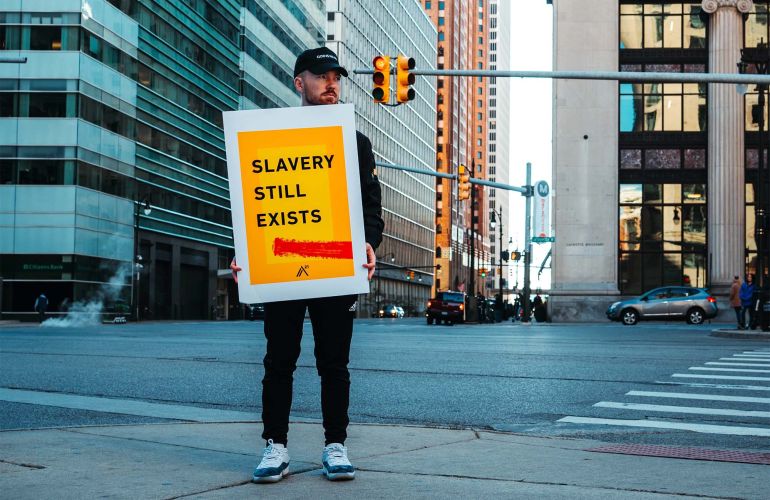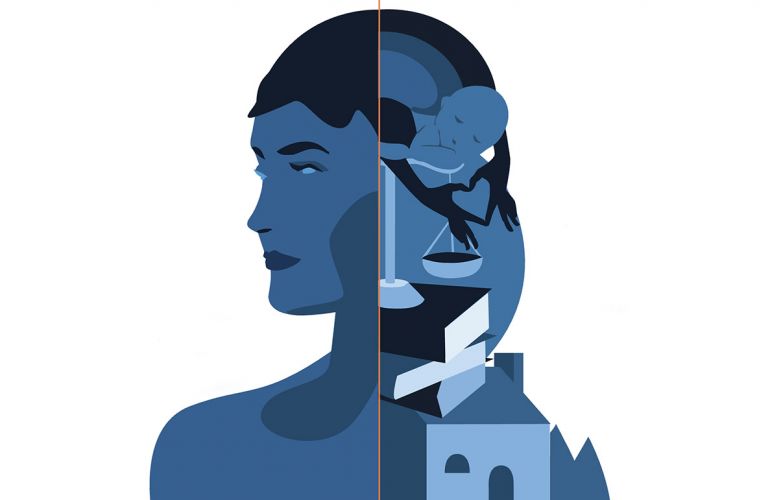Interview: Dr. Anne Gallagher on Confronting the Globalization of Indifference
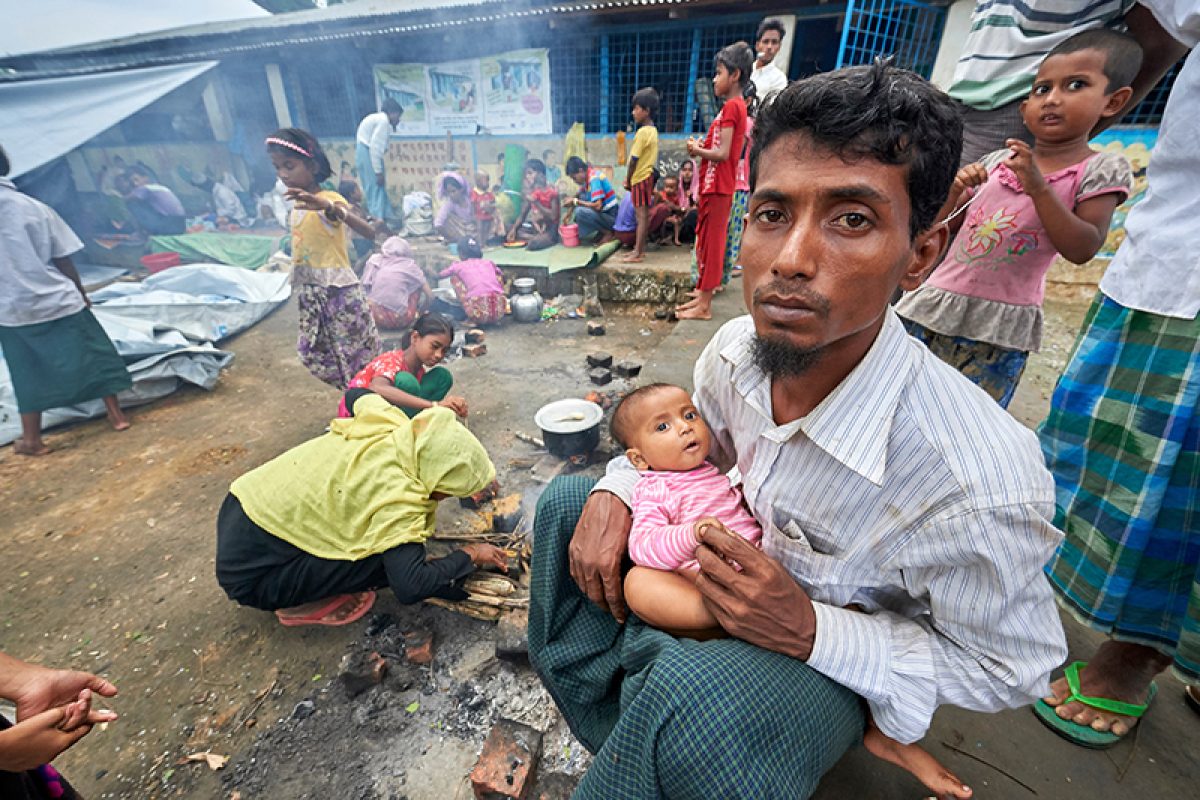
Pope Francis’ call to confront the “globalization of indifference” becomes more urgent every day, says Dr. Anne Gallagher, newly elected ICMC President, in the following interview. She believes that in today’s fractured, unequal and increasingly uncertain world we must all think deeply about what we can do to change things: to live out the urgent idea that we are all one human family with a responsibility to care for one another.
[ICMC] You are a worldwide leading expert on human trafficking. How did that happen? Why did you choose to focus on that subject?
[Dr. Anne Gallagher] In 1998, while working at the United Nations, I was asked by the new High Commissioner for Human Rights, Mary Robinson, to take the lead on the issue on trafficking: a hidden human rights abuse that she had begun to come across on her travels to Eastern Europe and South East Asia. At that time, the exploitation of human beings for private profit was very much a fringe human rights issue – rarely the subject of serious scrutiny or debate.
But things were changing. UN Member States had just then decided to develop an umbrella agreement on transnational organized crime – along with some mini-treaties on specific manifestations of organized crime, including trafficking. This gave us an unprecedented opportunity to shape the international community’s understanding of the problem and what was required to address it effectively. With the High Commissioner’s leadership as my principal resource, I spent the next few years helping to craft a new international legal framework around trafficking – not just the new treaty, but also a set of UN Principles and Guidelines that specifically aimed to advance the rights of individuals being exploited for profit.
Since leaving the UN in 2003 I have continued to work on human trafficking: with the UN and its member States; with regional organizations including the Association of South East Asian Nations (ASEAN); and with the dynamic civil society groups that have done so much to advance this issue and keep it at the top of the international agenda.
Much of my work has been on the front line: working with law-makers, judges, prosecutors, police and victim assistance agencies to end impunity for exploiters and secure justice for victims. I strongly believe that this practical exposure to what is happening on the ground makes me a more effective policy-maker and a better teacher and scholar. I am interested, always, in what works.
And my work on the front line has also helped to understand that trafficking is not going to go away anytime soon. Human exploitation has built our world and continues to drive global economic growth. It is woven into the fabric of our national economies, our communities and our individual lives. Unless and until we are willing to confront this truth, even our best efforts to address trafficking will only ever deal with the symptoms.
You have just been elected President of the International Catholic Migration Commission. What was your motivation to accept the position?
I accepted the position first and foremost because I believe, absolutely, in ICMC. I have seen this organization at work and have witnessed its impact first-hand.
I share ICMC’s commitment to relentlessly defending the rights of the most vulnerable people on our planet. I believe in its approach, which combines principled advocacy with practical good works. I am committed to the core tenets of peace and justice, love and compassion, that drive ICMC and shape every aspect of its engagement.
But I also accepted the position because I want to help confront what Pope Francis has rightly called “the globalization of indifference.” I believe that in today’s fractured, unequal and increasingly uncertain world we must all think deeply about what we can do to change things: to live out the urgent idea that we are all, in the end, one human family with a legal and moral responsibility to care for one another.
Pope Francis has spoken of the duty of the Church to give voice to those who cannot make their cry of distress and oppression heard. I believe that these words capture, precisely, the mission and the spirit of ICMC. It is an honor and a privilege to be part of that mission and that spirit.
How do you see your role as President of ICMC?
The President is the public face of ICMC. Her role is to advance the core tenets of peace and justice, love and compassion, that drive ICMC and shape every aspect of its engagement. I will advocate for these principles at every opportunity; defend them when they are under attack; and be tireless in my efforts to ensure that ICMC can do even better what it has always done so well – give voice to the powerless, the marginalized, the dispossessed.
The President also has an important role to play in reaching out to partners. The struggle we are engaged in requires a full army, not a single battalion. ICMC must continue and strengthen our engagement with critical players including the UN Refugee and Migration agencies (UNHCR and IOM), the Bishops’ Conferences, and the many Catholic organizations that operate both on the front line and behind the scenes. But we must also be brave and creative in seeking new partnerships with Governments, intergovernmental organizations, civil society, and the private sector.
As President, I will work to ensure that ICMC is part of every important conversation about the issues in which we are involved. Not because we want to be there, but rather because we have something unique and valuable to contribute.
What challenges do you see ahead for the international community on the migration front? And how should this shape the work of organizations such as ICMC?
I am not alone in my conviction that our international community has entered a period of great stress and uncertainty. The faith in multilateral cooperation and multilateral institutions that sustained us so well over the past half-century seems to be crumbling before our eyes. Commitment to fundamental principles of human rights and justice that we thought set in stone has eroded across the board. Countries that have long been leaders in our epic battles for equality, rights and non-discrimination have fallen silent, or worse.
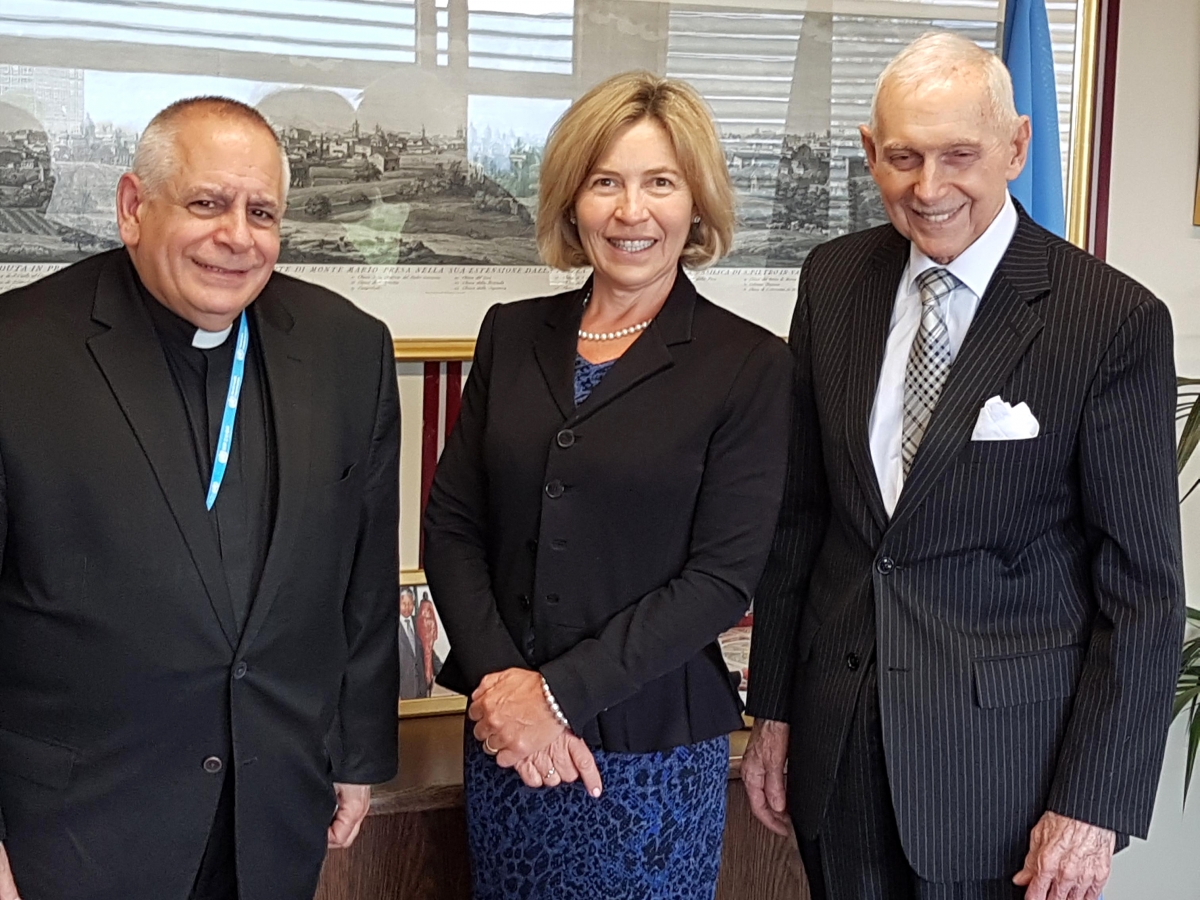
And migration has become the flashpoint in this rapidly changing political and social reality. Increasingly, migration is the lens through which governments and communities are interpreting and responding to the world.
On one level this is not surprising. There are more people on the move today – and more people living outside their country of birth – than at any other time in human history. The number of refugees and internally displaced is edging up towards the unimaginable figures that were recorded after the last world war. There can be no doubt, in my mind, that the ‘migration crisis’ we hear of so often, is very real.
But the ‘crisis’ is much more complex and much deeper than commonly portrayed. We know that migration is as much a part of globalization as the free flow of goods and capital. We know that the global economy would grind to a halt without migrant workers. We know that many countries would be economically, culturally and spiritually poorer without their migrants. We also know that current migration regimes are deeply unfair. They put individuals, families and communities at great risk. They disempower – and too often criminalize – migrants; they rob workers and reward exploitation; they deprive millions of women, men and children of the most basic rights, including the right to be recognized as a person before the law and the right not to be discriminated against.
This understanding of where we are now informs my sincere belief that ICMC and its partners must continue – must do even more, in fact – to embody a message of human rights and human dignity.
And that means extending compassion and understanding to the host communities and societies that are being changed by migration. While much of the change we are seeing is positive, many are concerned about the loss of livelihood and identity, about security and personal wellbeing. To dismiss these fears as racist or ignorant is alienating and unhelpful. In our struggle to make migration safe, dignified and beneficial for all we must work to ensure that none are left behind and that the burdens and benefits of migration are equitably shared.
What would you like to have achieved by the end of your mandate as President?
My focus, over the next four years, will be threefold.
First, I will work to maximize ICMC’s capacity to influence positive change: our capacity to inform, educate, challenge and inspire. I will work to ensure that we do everything possible to contribute to setting a global agenda for migration that is truly based on peace, justice, love and compassion.
And we have a formidable tool at our disposal. The consistent and principled engagement of Pope Francis on the migration issue has given Catholic-inspired agencies like ICMC an unprecedented opportunity to speak the Church’s truth loudly, clearly and consistently and to provide urgently needed global leadership that will reinforce the moral and spiritual guidance offered by the Holy Father.
Second, I will work with ICMC Governance and its partners to place the organization on a stronger and more sustainable financial footing. I strongly believe that ICMC represents genuine value for money. With an annual budget the size of many single development initiatives, ICMC is a solid performer. It has strong visibility. It runs a solid portfolio of well-targeted interventions while also managing to be a major player in advocacy and policy development. ICMC has amply demonstrated its skill in leveraging other organizations to increase its influence and impact. As the need for migration support services and principled advocacy increases, the demands on ICMC and its partners can only be expected to grow. Expanding our funding base – for example by involving the private sector – will be essential if we are to meet growing and changing needs.
And third, I am convinced that, with stronger and more predictable finances, ICMC will be well placed to expand its geographical reach and focus. For example, the nature of the migration challenge – particularly over the longer term – demands that all of us working on migration give the African continent our full attention and support. And other regions must also be considered for priority attention as we seek to make ICMC more responsive to needs on the ground. In Asia for example, we are witnessing a perfect storm of the world’s fastest-growing refugee crisis, massive exploitation of migrant workers, and climate-fueled displacement on an unprecedented scale. In Europe and North America, the challenge of promoting integration and solidarity in the face of increasing community mistrust will severely test us all in the coming years. Latin America and the Middle East – including the Gulf Countries – are also presenting unique challenges that ICMC and its partners must stand ready to respond to.
Do you have some final words of hope?
Absolutely. I often say that I am a short-term pessimist but a long-term optimist. Certainly, the challenges ahead of us are enormous. But we should never lose sight of how far we have come and how quickly. While much remains to be done, there is also much to celebrate and build upon. We must all fix our eyes on a future that is achievable in our lifetime: a future where peace and justice, love and compassion, overcome our fears and divisions. A future where we recognize each other as brothers and sisters, united in one human family.
